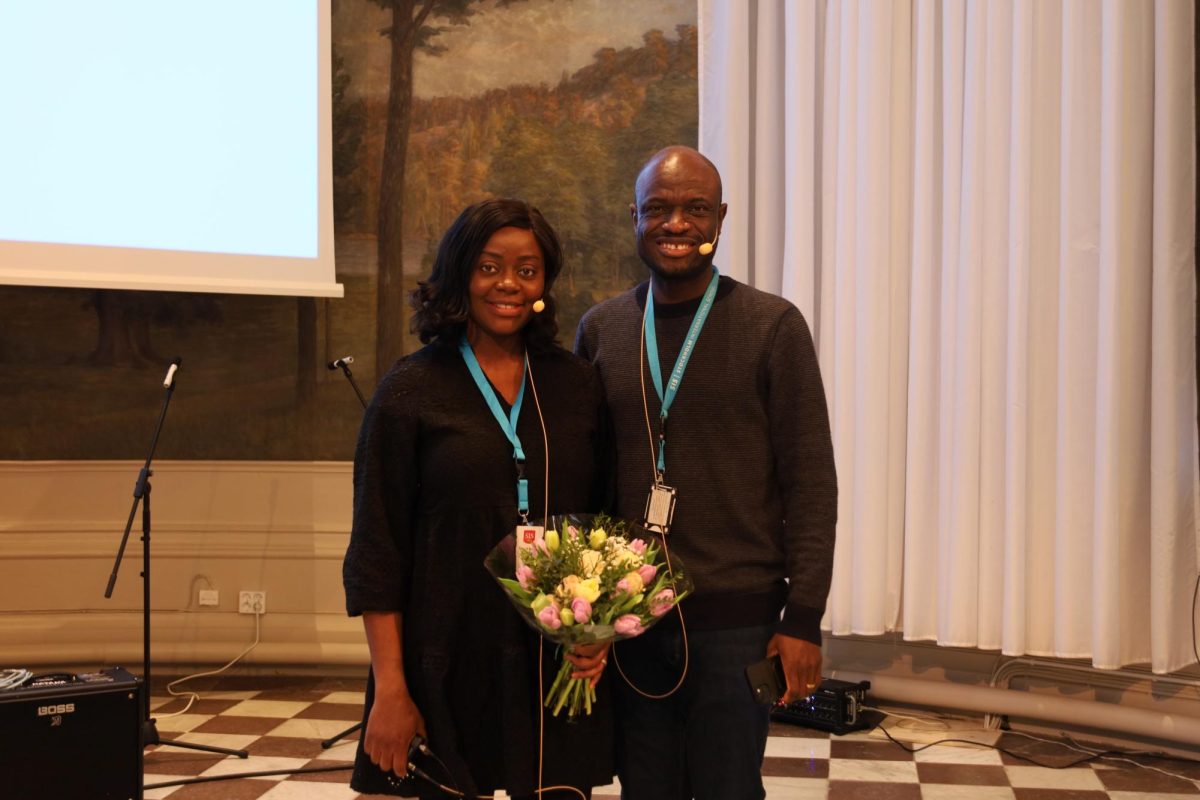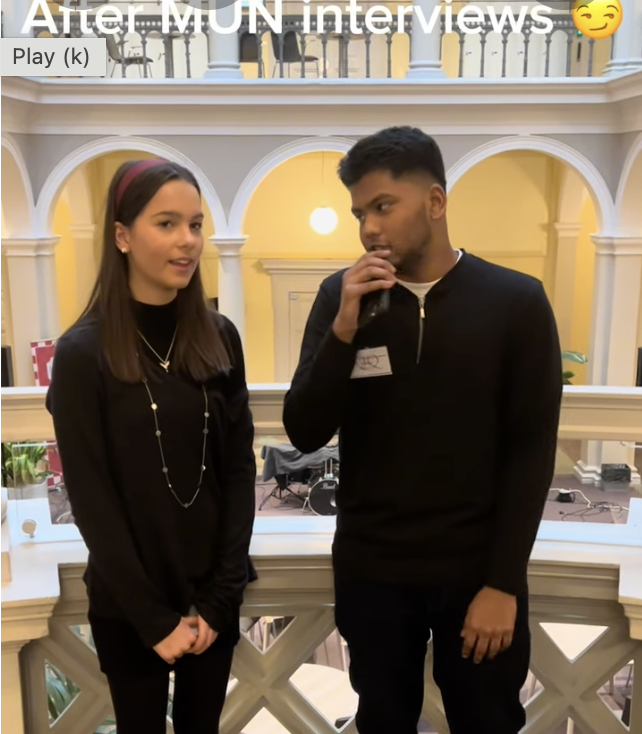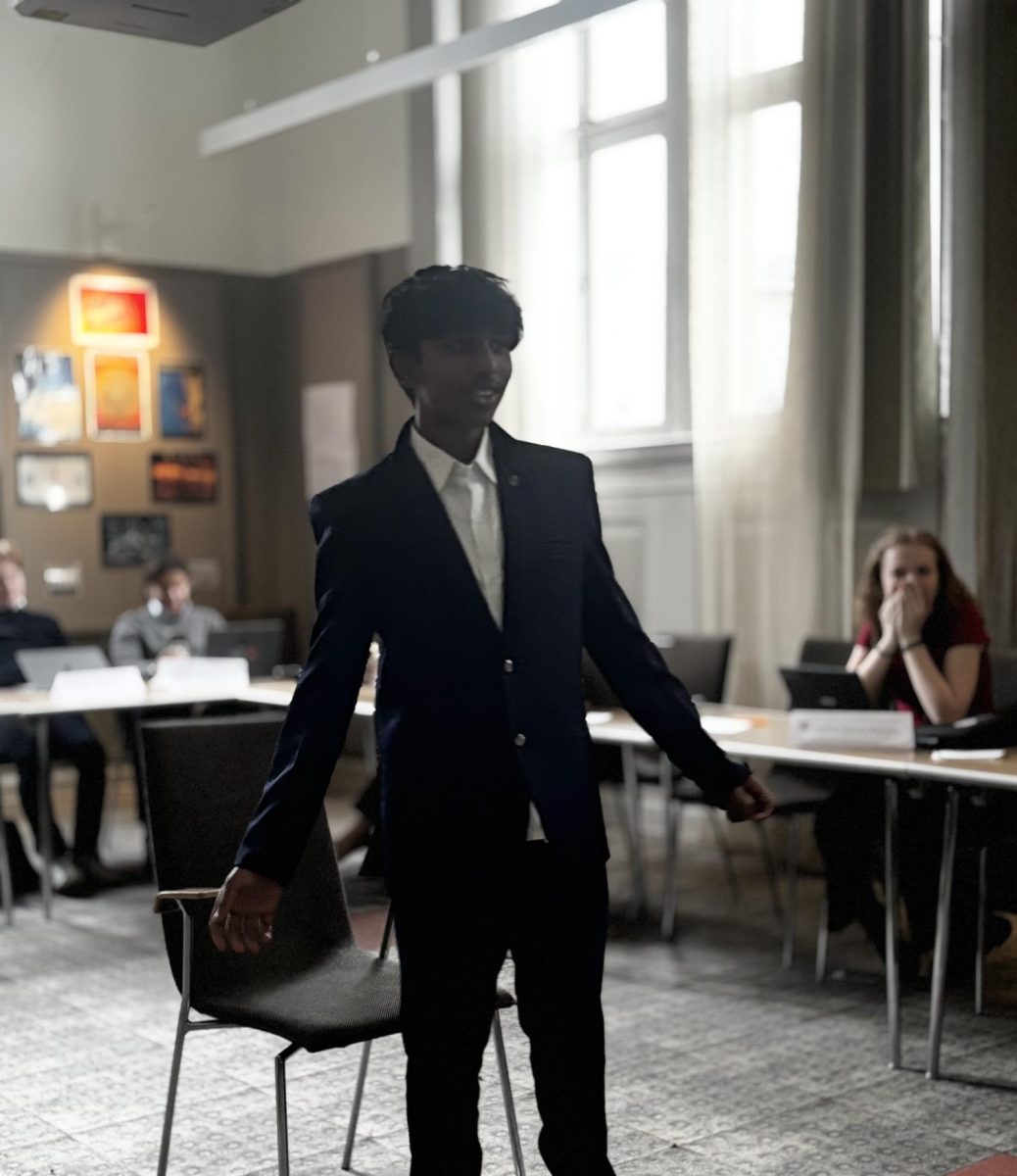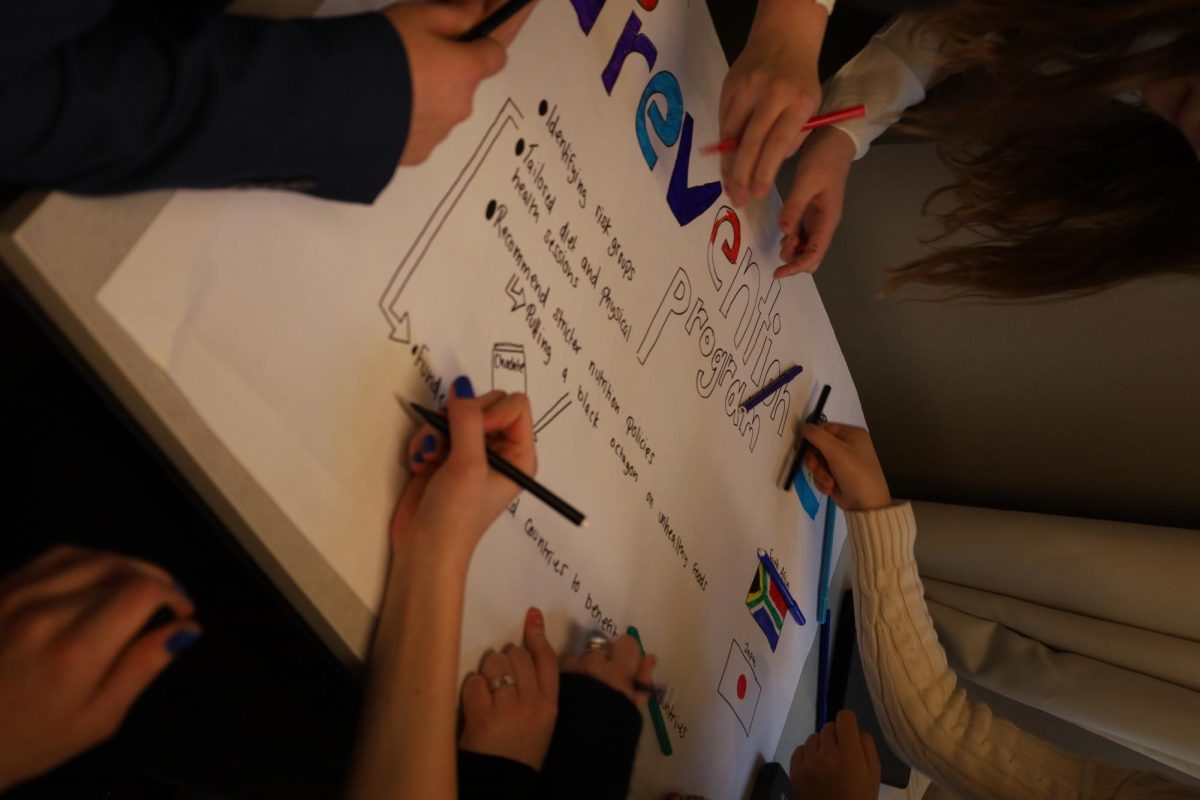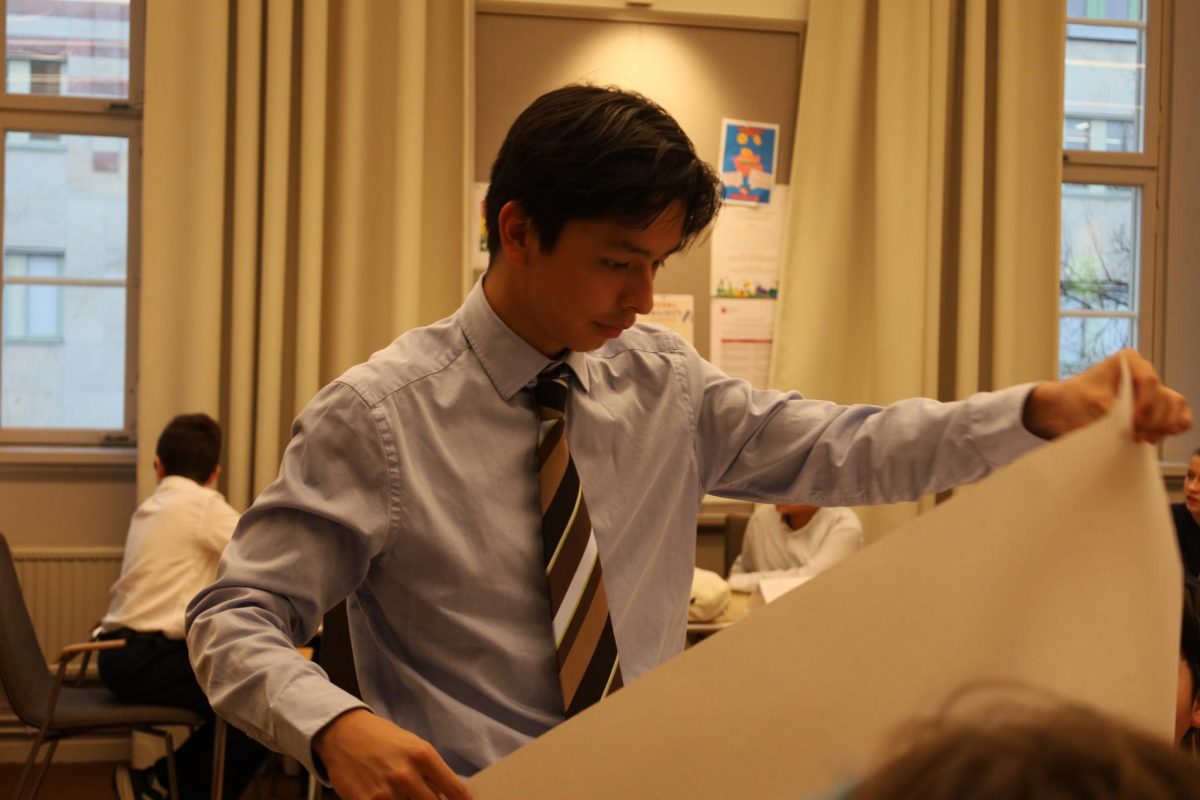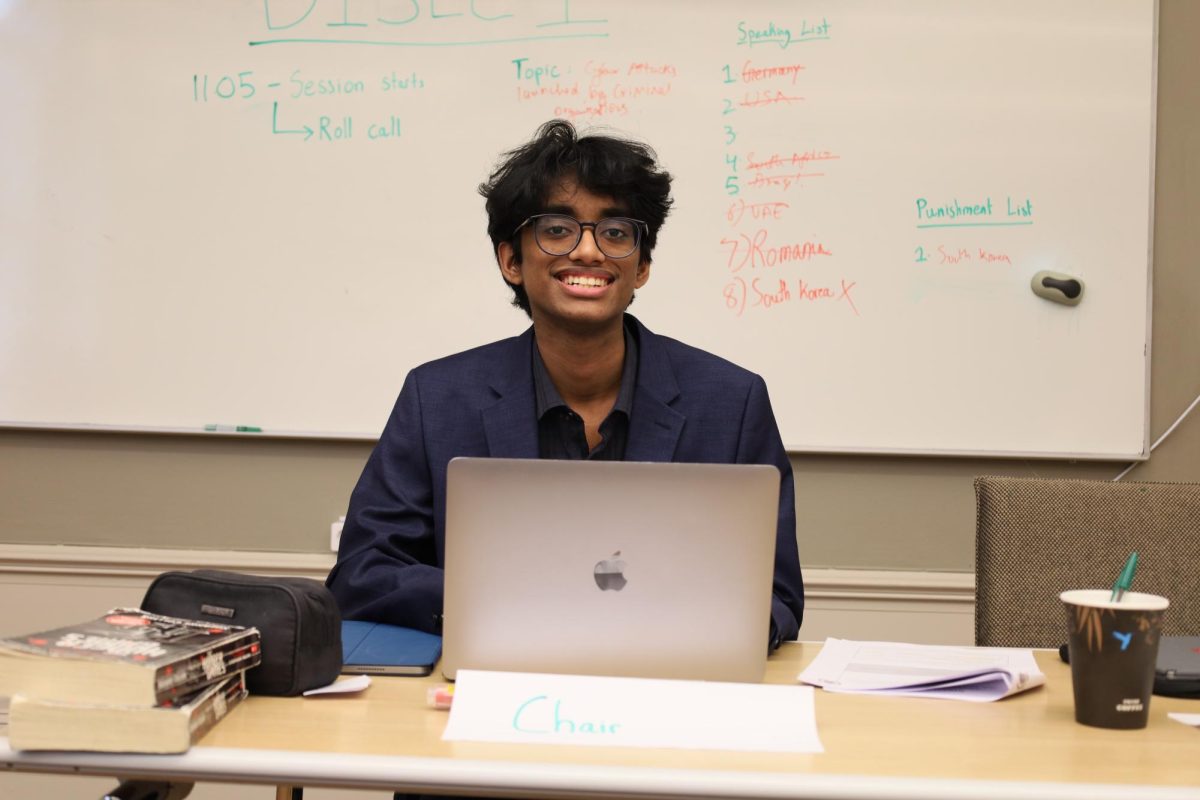The speakers were a married couple, Adebayo and Olabisi Adekola. Please see the profiles they provided at the end of the article.
In their first speech for those doing mini MUN, they started off by asking the students, “How do you see the world?” They received three responses from the students, “complicated”, “unfair”, and “special”. They moved on to talking about UNICEF, what it is, what they do, and why they do it. In this speech, they focused on climate change, with a big emphasis on, “The Climate Changed Child”. Adebayo asked all the students to repeat – “The Climate Changed Child” three times so the concept could seep and stick. The concept is that there are children all over the world being affected by the climate, it affects their education, health, protection, and the ability to achieve their dreams. They talked about how unless we act now, climate change will continue to negatively affect children all over the world, so we must start acting sustainably, buy clothes second hand, reduce, reuse and recycle. Then the question, “By changing your diet do you think that you can reduce our carbon footprint?” was asked. A student responded that changing your diet can reduce our carbon footprint, because animals we eat, such as cows, release methane from their manure and “their farts and burps, which happens every 90 seconds”.
In their second speech to the older students, they started off by talking about UNICEF and how it is working there, and an introduction on what their jobs are in UNICEF. In this speech they talked about the impact of UNICEF on refugees. They started off with the question, “Who is a refugee?” A student responded with someone who has fled their country due to flooding, war, and certain situations or contexts. Adebayo talked about how many of these people are children, and what UNICEF does to help these children. He talked about blue dots, which is an initiative with UNHCR. They are safe spaces for children that have been affected by war and adverse situations, spaces they can learn, engage with people, and get the support they need to integrate into the societies that they have fled to. Blue dots are a way to help children and help them “get their lives back”.
He talked about how some of the most important things that UNICEF aims to achieve is that the children stay healthy and stay in school. Before playing a video, to further demonstrate what they do, he talked about how, as citizens, something important that we can do for refugees is be kind, “share with others what you have”. The video showed Romanian children preparing a welcome visit for Ukrainian children that had fled to Romania from the war. After the video Olabisi repeated how we can “learn from everybody”, and that we should do our best to advocate and share our love and encouragement with them.
They then moved on to questions. Some of those questions were;
“What has been your favorite parts of working with UNICEF for many years? Your favourite memories?” Olabisi said that being able to work with and help children, then have the flexibility to return home and be with her own children was one of the major aspects for her. Adabayo said the smile on the face of children when they reconnect with their families and when they are in school learning, and just seeing children innovate.
“What’s the most emotionally challenging thing you experienced during your job?”
Adebayo said that during his career, when he worked with usaid projects, he had gone to one of the health facilities in Nigeria, where he met a woman who was living with HIV, and she hadn’t known that she was HIV positive until she got pregnant and went for antenatal care and they discovered she was. But “the beauty of it all” was that the services they offered in terms of preventing mother to child transmissions allowed the baby to be born HIV negative and then they were able to live their lives without any issues. He said that this story is so impactful to him because it shows how “there is life even if you face adverse situations, and there is hope, and hope in the work that we do”.
Profiles
Adebayo Adekola is a seasoned International Development Leader with 20 years of experience across financial services, public health consulting, non-profits, and the UN system. As Head of Innovation Portfolios and Governance at UNICEF Office of Innovation, he oversees strategic innovation portfolios in climate, health, humanitarian action, and gender/youth development. Previously, he managed public health emergency strategies and systems strengthening at UNICEF, leading pandemic preparedness initiatives & fund. Prior, Adebayo worked with not-for-profits in the Netherlands and as an Advisor for USAID and Global Fund projects covering HIV, TB, Malaria and Reproductive Health.
Olabisi Adekola is a Human Resources and operations Professional with close to a decade experience in HR data analytics and extensive knowledge of United Nations systems. She has international experience across Nigeria, the Netherlands, Denmark and Sweden. She is married to Adebayo Adekola and they have two lovely boys – Ibukun and Iyanu. Her hobbies are baking and spending time with family.”


